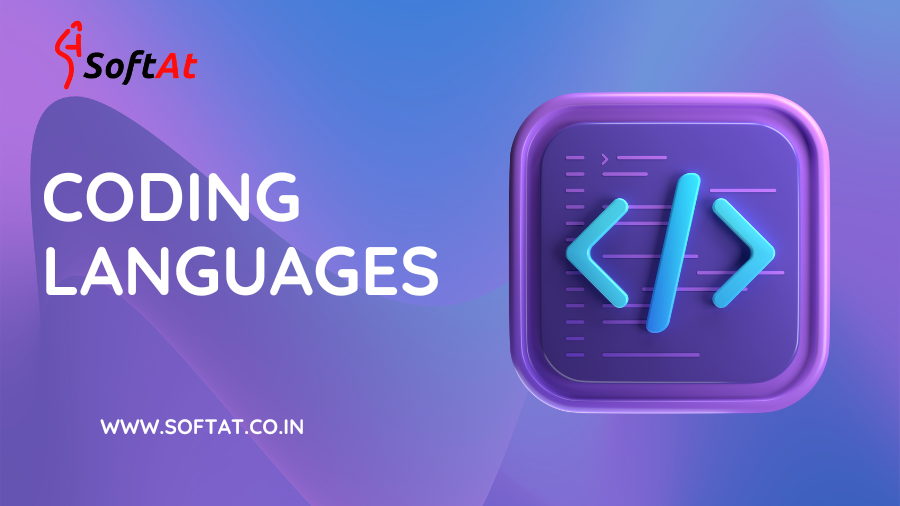In the fast-paced and dynamic digital landscape, coding languages serve as the foundation for creating the software that powers our world. From the early days of Assembly and Fortran to the present era of Python and JavaScript, the evolution of coding languages has been marked by innovation and adaptability.
Evolution of Coding Languages
Early Languages
In the beginning, programmers worked with low-level languages like Assembly and Fortran, grappling with intricate details of hardware. These languages paved the way for more abstract and user-friendly options.
Transition to High-Level Languages
The introduction of languages like C and C++ brought a paradigm shift, enabling developers to write more expressive and readable code. This transition marked a turning point in the history of coding.
Emergence of Modern Languages
Today, we find ourselves in an era dominated by modern languages such as Python, known for its simplicity and versatility, and JavaScript, the backbone of web development.
Popular Coding Languages
Overview of Top Languages
Python, Java, JavaScript, and C# stand out as some of the most widely used languages. Each has its strengths and is tailored for specific applications.
Specialized Languages
In addition to general-purpose languages, there are specialized ones like SQL for database management and R for statistical computing.
Choosing the Right Language
When embarking on a coding journey, the choice of language is crucial. Consider project requirements, ease of learning, and the specific pros and cons of each language.
Trends in Coding Languages
Rise of New Languages
Languages like Go and Rust are gaining popularity for their performance and efficiency, addressing the evolving needs of the tech industry.
Adaptation to Industry Needs
languages are evolving to meet industry demands, especially in fields like cloud computing and artificial intelligence.
Importance of Learning Multiple Languages
Diversifying your skill set by learning multiple languages not only broadens your job prospects but also enhances your problem-solving skills and creativity.
Coding Languages and Web Development
Understanding the relationship between languages and web technologies is crucial. Distinctions between front-end and back-end languages play a pivotal role in web development.
Coding Languages in Data Science
For data scientists, the choice of programming language is vital. Python and R are favored for their extensive libraries and tools in data analysis and machine learning.
Challenges and Solutions in Coding
While coding offers endless possibilities, it comes with challenges. Overcoming issues like debugging and algorithm optimization requires skill and perseverance.
Future of Coding Languages
As technology advances, so do languages. Predicting future trends involves considering the influence of emerging technologies like quantum computing and decentralized systems.
Coding Languages and Mobile App Development
The world of mobile app development relies on languages such as Swift for iOS and Kotlin for Android. Cross-platform development languages like Flutter and React Native are gaining traction.
Learning Resources for Coding Languages
Numerous online platforms and courses facilitate learning languages. Engage with communities, utilize resources, and adopt effective self-learning strategies.
Coding Communities and Collaboration
Being part of coding communities is not just about networking; it’s about collaboration and knowledge-sharing. Platforms like GitHub provide spaces for developers to collaborate on open-source projects.
Coding Languages and Cybersecurity
In the realm of cybersecurity, the choice of coding language is critical for developing secure software. Certain languages, like Rust, are gaining popularity for their focus on memory safety.
Conclusion
In conclusion, coding languages are the backbone of the digital revolution. Their evolution, from the early days of complex low-level languages to the current era of versatile and user-friendly options, has shaped the technology landscape. As we look to the future, the importance of learning and adapting to new languages cannot be overstated. Continuous learning, community engagement, and staying abreast of industry trends are the keys to thriving in the dynamic world of coding.
FAQs
- Which coding language is best for beginners?
- For beginners, languages like Python and JavaScript are often recommended due to their readability and versatility.
- Why is learning multiple coding languages important?
- Learning multiple languages enhances problem-solving skills and opens up a broader range of job opportunities.
- What challenges do programmers commonly face?
- Programmers often face challenges like debugging, algorithm optimization, and staying updated with evolving technologies.
- How do coding languages impact web development?
- languages play a crucial role in web development, with distinctions between front-end and back-end languages shaping the user experience and functionality.
- What is the future of coding languages?
- The future of languages involves adapting to emerging technologies like quantum computing and addressing industry-specific needs.
You may be interested in:





